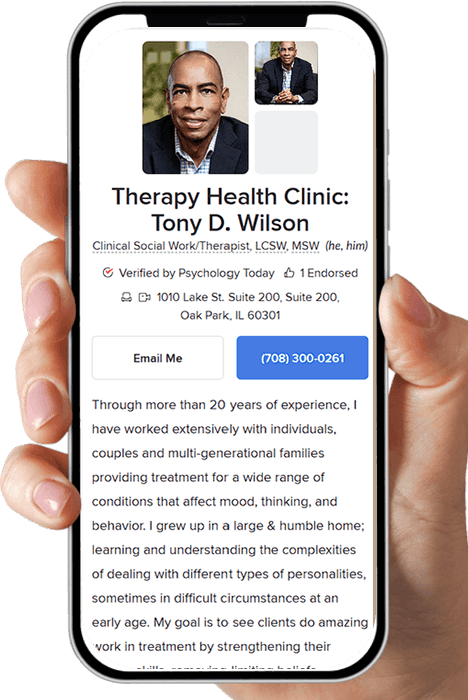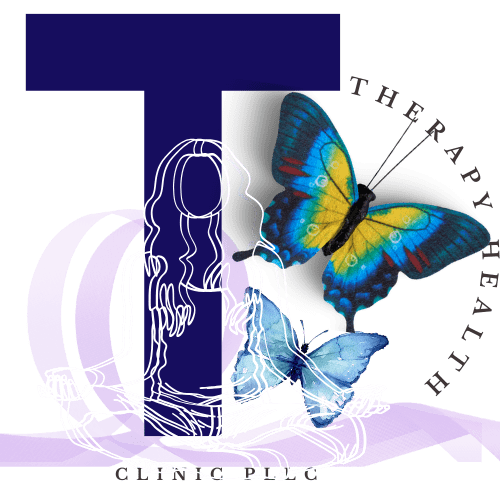

Start Living
Rediscover Your Inner Joy
And Begin The Journey Towards
Optimum Mental Health




OUR TREATMENT APPROACHES

We’re Here Through Your Toughest Journeys
Our therapists may use a combination of approaches or evidence based methods in treatment based on the client’s specific condition or needs. We utilize the following Five (5) Core Treatment Methods as categorized by the American Psychological Association for the Different Approaches to Psychotherapy.

REFERENCE FROM AMERICAN PSYCHOLOGICAL ASSOCIATION
Psychodynamic PSYCHOANALYSIS therapies
Psychoanalytic therapy explores the unconscious mind to reveal repressed memories and unresolved conflicts.
Behavior therapy
This is based on the idea that behaviors are learned and can be changed. This is a type of therapy that helps people identify and change unhealthy or self-destructive behaviors.
Cognitive therapy
Cognitive therapists assert that dysfunctional thinking is a primary contributor to maladaptive emotions and behaviors. By modifying one’s thought patterns, individuals can effectively alter their feelings and subsequent actions.
Humanistic therapy
1) Client-Centered Therapy:
2) Gestalt Therapy: Highlights present-moment awareness and personal responsibility.
3) Existential Therapy. Centers on free will, self-determination, and discovering life’s meaning.
Integrative/ Eclectic Methods
A combination of methodologies, each offering unique insights and tools for mental wellness.
Our clinic is a place of transformative therapy, where dedicated professionals guide individuals towards well-being and self-discovery.
Our clinic emphasizes evidence-based therapeutic strategies, tailoring treatments to address specific psychological and behavioral challenges.
We promise that every patient receives the highest standard of care and the utmost respect during their therapeutic journey.
Mental Health
Services
For all groups
Sustain Your Healthiest And Happiest Life
Our clinic positions clients at the center of our care. It is a collaborative process starting from the intake process, to the individualized treatment planning that encourages trust and open communication among all parties.
We are a highly specialized clinic with the expertise in dealing with the most common to the most advanced mental health issues for individuals, couples, families, or groups in all demographics.

Tony D. Wilson
PRESIDENT | CEO | CLINICAL DIRECTOR
Tony, CEO and Founder of Therapy Health Clinic, has over 20 years of experience enhancing patient well-being as a Licensed Clinical Social Worker and psychotherapist. He leads the organization’s strategic direction, prioritizing high-quality client care, regulatory compliance, and operational efficiency in a collaborative environment. Known for his therapeutic techniques and supervisory skills, Tony focuses on optimizing mental health care, developing his team, and effective organizational management.
MOST COMMON CASES TREATED
Licensed Clinical Social Worker (LCSW), Master of Social Work
- Depression
- Anxiety
- Stress
- Trauma
- Mood Disorders
- Marital/ Relationship Conflict
- Parent-Child Relationship
- Work-Family Balance
- Behavioral/ Personality Disorder
MOST COMMON METHODS USED
- Cognitive behavioral therapy (CBT)
- Dialectical behavior therapy (DBT)
- Psychodynamic and psychoanalysis therapies
- Gottman Institute (Couples Therapy)
- Acceptance and commitment therapy
- Interpersonal therapy
- Supportive therapy
STATUS: Accepting New Clients
- Accepts Major Insurance/ Self-Pay
- Telehealth (Virtual Therapy Sessions)
- Sliding Scale/ Online Payment ($190- $350+)


The best thing about therapy is.....
PRIORITIZING YOU!
Our Experts
Meet our friendliest and most compassionate experts. They are highly skilled in ensuring quality care while being committed to ensuring you are comfortable and given top-notch service.

Tony D. Wilson
PRESIDENT | CEO | CLINICAL DIRECTOR
Tony, CEO and Founder of Therapy Health Clinic, has over 20 years of experience enhancing patient well-being as a Licensed Clinical Social Worker and psychotherapist. He leads the organization’s strategic direction, prioritizing high-quality client care, regulatory compliance, and operational efficiency in a collaborative environment. Known for his therapeutic techniques and supervisory skills, Tony focuses on optimizing mental health care, developing his team, and effective organizational management.
MOST COMMON CASES TREATED
Licensed Clinical Social Worker (LCSW), Master of Social Work
- Depression
- Anxiety
- Stress
- Trauma
- Mood Disorders
- Marital/ Relationship Conflict
- Parent-Child Relationship
- Work-Family Balance
- Behavioral/ Personality Disorder
MOST COMMON METHODS USED
- Cognitive behavioral therapy (CBT)
- Dialectical behavior therapy (DBT)
- Psychodynamic and psychoanalysis therapies
- Gottman Institute (Couples Therapy)
- Acceptance and commitment therapy
- Interpersonal therapy
- Supportive therapy
STATUS: Accepting New Clients
- Accepts Major Insurance/ Self-Pay
- Telehealth (Virtual Therapy Sessions)
- Sliding Scale/ Online Payment ($190- $350+)

Statistics reveal that mental illness pervades the landscape of the United States and beyond. It is imperative to acknowledge that pursuing treatment is not merely acceptable; it is a crucial stride toward achieving wellness.
Why Choose Us

SECURE/HIPPAA COMPLIANT.
Positive Relief from Symptoms within 1-3 visits




Client Experience
We promise to raise the standard of how we do business as a private mental health practice, constantly adapting and innovating systems of success that are hyper-focused on effective evidence-based treatment methods, intelligent technology, business decisions, and solid ethical principles.
Our Advantage
- Telehealth & in-person appointments
- Insurance-friendly
- A streamlined process
- State-of-the-art modalities
Member-Centric
- Transparent care
- No sterile waiting rooms
- One-on-one experience
- Accessible care from home
Therapist-Led
- Integrated support and services
- A concierge patient experience
- Exceptional outcomes
- Greater care, lower costs
New Location: 1010 Lake St. Suite 503, Oak Park, IL
How to Get Started
Inquiry/Intake
– You can call
– Send a message
– Register online
Pre-verification
– Service screening
– Verifying insurance
– Payment method
Scheduling
Schedule an appointment with your chosen therapist!
Your session
You and your therapist will work together towards your goals.
Billing/Follow up
Everyone’s treatment plan is different. Reaching the finish line is our end-goal.





















